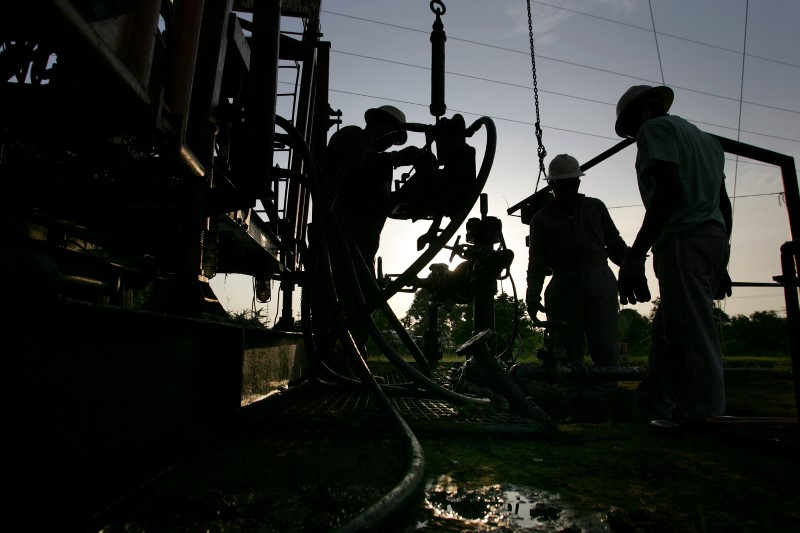By Marianna Parraga
(Reuters) - Two tankers that were sailing toward Venezuela to load crude have turned around since the weekend and three other vessels have left Venezuelan waters as the United States considers blacklisting dozens of ships for transporting the country's oil, according to shipping data and industry sources.
Washington is considering imposing sanctions on tankers involved in exporting Venezuela's oil as the U.S. government seeks to choke off the main source of revenue for socialist President Nicolas Maduro.
Previous rounds of sanctions have reduced Venezuelan oil exports to a 17-year low while deepening the country's economic crisis but Maduro has held on, frustrating the administration of U.S. President Donald Trump.
Tighter U.S. restrictions on shipping would make it more difficult for state oil firm PDVSA to deliver oil to refineries abroad. Exports dropped to about 452,000 barrels per day in May, the lowest since a national strike paralyzed the economy and hit exports in December 2002 and January 2003.
Some ship operators have started diverting vessels away from Venezuela to avoid the risk of incurring sanctions that would make it harder to keep the tankers working.
Malta-flagged tanker Seadancer, operated by Greek firm Thenamaris Ships Management and chartered by Thai refiner Tipco Asphalt, returned to Gibraltar after waiting in the Atlantic Ocean for a week, according to Refinitiv Eikon vessel tracking data.
Tipco Asphalt told Reuters on Tuesday the company had dropped plans to use the vessel.
The Seadancer had previously been on course for waters off the western coast of Venezuela at Amuay, where oil is transported from one ship to another, according to the Eikon data and PDVSA's export schedules.
The vessel was scheduled to load 1 million barrels of Venezuela's Boscan crude for shipping to Malaysia's Kemaman refinery, operated by Tipco, according to the PDVSA schedules. Tipco has a long-term supply contract with PDVSA that has not been affected by sanctions.
Another vessel operated by Thenamaris that had loaded crude in Venezuela in February, the Seahero, was sanctioned by the U.S. Treasury Department last week along with its owner, Adamant Maritime Ltd.
A second Malta-flagged tanker expected in Venezuela, the Novo, made a U-turn this week in the Caribbean Sea. The vessel was scheduled to transport 1 million barrels of Hamaca crude in June to Singapore, the Eikon and PDVSA data showed.
The contract for chartering the Novo was also suspended in recent days, according to two PDVSA sources. The tanker is operated by Dynacom Tankers Management Ltd, which also operates the Chios I, sanctioned last week by the U.S. Treasury.
PDVSA and Venezuela's oil ministry did not reply to requests for comment for this story. Thenamaris Ships Management and Dynacom Tankers did not immediately reply to requests for comment. As the word spread on the possibility of more Venezuela-related shipping sanctions to come, at least three more very large crude carriers (VLCCs) - Boston, Commodore and Respect - exited Venezuelan waters over the weekend to anchor at the Eastern Caribbean, the Refinitiv Eikon data showed.
The operators have been waiting for clarification from PDVSA customers, brokers, vessel owners and charterers on whether they can go ahead with exports amid increased risk of sanctions, the sources said.
In late May, PDVSA added an advisory seen by Reuters to its export program saying that another tanker scheduled to transport Venezuelan crude that month to Asia had "refused loading due to sanctions."
